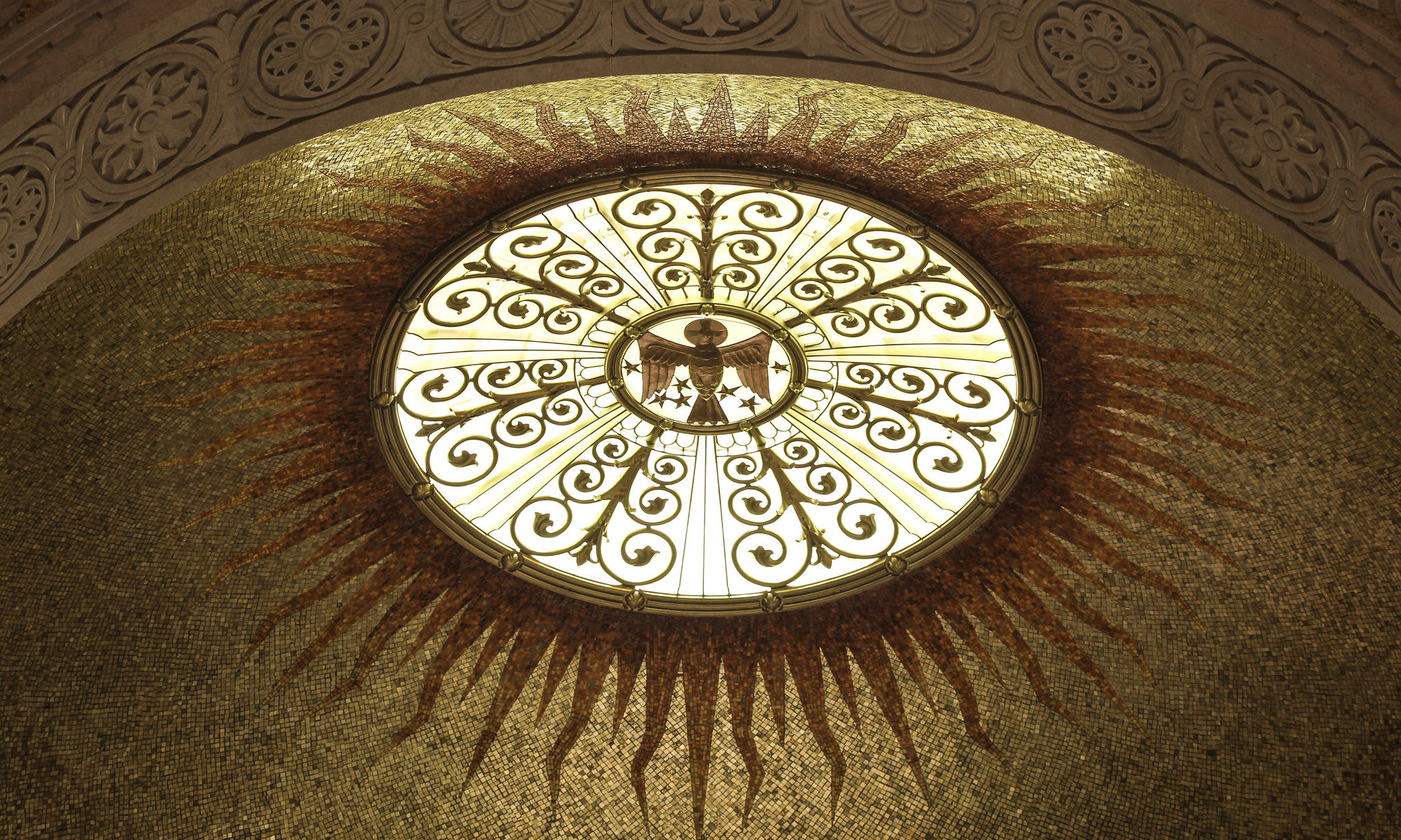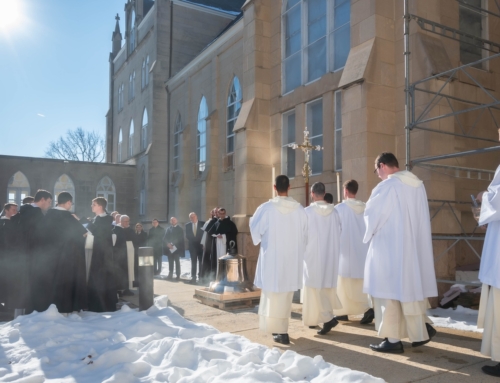“Do what feels right.” This is a favorite expression of one of my friends. It’s catchy and certainly practical. In modern secular society, it can suggest an individualistic approach to morality, something that can involve relativism or hedonism—some sort of Woodstockian take on absolute freedom. Does that irretrievably taint the phrase? Not quite. It can strike a deep cord for almost everyone because it opens a window into the moral freedom for which we all long as sentient and intelligent beings. It can even apply as a manifesto to the man or woman who has been redeemed and transformed by God’s grace bestowed through Jesus Christ. The one who lives by Christian love faithfully begins to experience a freedom previously unknown.
One verse from St. Paul’s Letter to the Galatians recently read at Mass is pregnant with meaning for our contemporary fascination with personal identity and freedom. It is one that promises to change the way a Christian, in the long run, thinks about his or her destiny and the steps he or she must take to get there. The central clause is easy to remember: “Christ set us free” (Gal 5:1a). In full, the verse can be read: “For freedom Christ set us free.” The Apostle provides a motive for Jesus’ mission: freedom from sin and its consequences. What is more, he ties this experience to his discussion of the gift of faith, which Christ uniquely brings. St. Paul specifies that being joined to Jesus’ redemptive action (i.e., his sacrifice on the Cross), his followers actually become children of God and co-heirs to his kingdom. Here we experience a care and respect not felt before, and it comes from loving contact with a person capable of knowing our most profound needs.
Christianity is not merely conformity to a code of rules or even an ascribed set of soothing rituals. Instead, via the Cross and the sacraments of faith, it brings salvation through a real relationship with God. The life of a practicing Catholic becomes “faith working through love” (Gal 5:7). Experiencing this love fulfills us as human beings. St. Paul lists the fruits of living one’s faith in this way: love, joy, peace, patience, kindness, generosity, faithfulness, self-control (cf Gal 5:22-23). Employing one’s freedom to chase after the desires of the flesh, on the other hand, leads to a very different set of results: immorality, impurity, licentiousness, idolatry, sorcery, hatreds, rivalry, jealousy, outbursts of fury, acts of selfishness, dissensions, factions, occasions of envy, drinking bouts, orgies, etc. (cf Gal 5:20-21). Which of these lists sounds more constraining? Which leads to the liberty we desire?
Today’s saint, Maria Goretti (1891-1902), offers a striking example of the freedom faith in Jesus brings. Maria was the devout, eldest child in a large Italian peasant family. When her father died, she was left with the responsibility of caring for her five siblings, while her mother worked in the fields for their food. We know about Maria’s virtue only because it was horribly assaulted. Lacking the oversight and protection of her father, Maria was continuously sexually harassed by a live-in neighbor who worked with her family. Eventually the young man, named Alessandro Serenelli, was so obsessed by lust that he assaulted Maria, demanding her surrender at knifepoint. But she refused, citing her desire to adhere to God’s commandments. This enraged Alessandro, and he proceeded to carry out his threat. Despite being transported to a hospital, Maria died from the attack. Maria’s faith proved simple yet far from simpleminded. Her final words in the hospital speak volumes as to her inner state: “I forgive Alessandro Serenelli … and I want him with me in heaven forever.” Having feared her persecutor and having fought bravely against his advances, Maria was enabled to think and love with a generosity and ease attributable only to the divine freedom. Having lived a life of grace and virtue up to that point, her transformed feelings led her to follow the path of forgiveness indicated by God’s Holy Spirit. Alessandro, on the other hand, would later admit that he had become “blinded by a brute impulse” in his very different pursuit of freedom. Miraculously, Maria’s luminous freedom in faith would lead to the conversion of her murderer 6 years later in prison.
With St. Paul as teacher and St. Maria as a role model, we can take a moment to examine our own lives in light of theirs: Do I desire freedom as something based in a relationship with my heavenly Father? Do I trust each day that the Holy Spirit is with me to inspire me and strengthen me even in doing things that are humanly very difficult? Do I thirst for the effects of the freedom that serves instead of the one that selfishly takes? How we answer these questions will make all the difference in our Christian lives. If we desire and pray for the freedom that comes through faith, we will gradually find ourselves “doing what feels right” at the deepest level possible. Rather than hitting shallow dead-ends, we will find ourselves in relationships of love with Christ and others that promise to restore and renew our humanity.
✠
Image: Lawrence Lew, O.P., The Holy Spirit at the National Shrine of the Immaculate Conception (used with permission)







